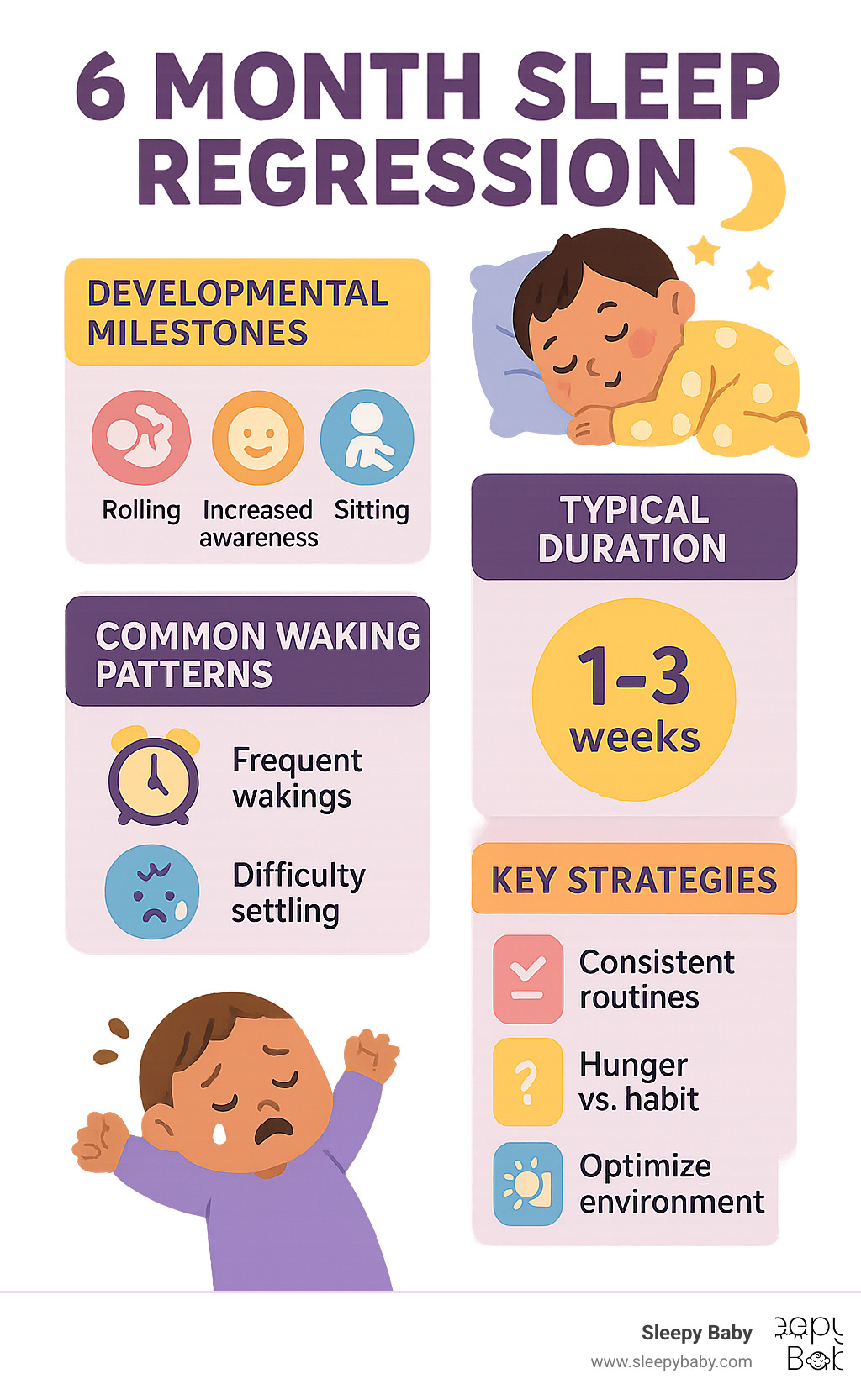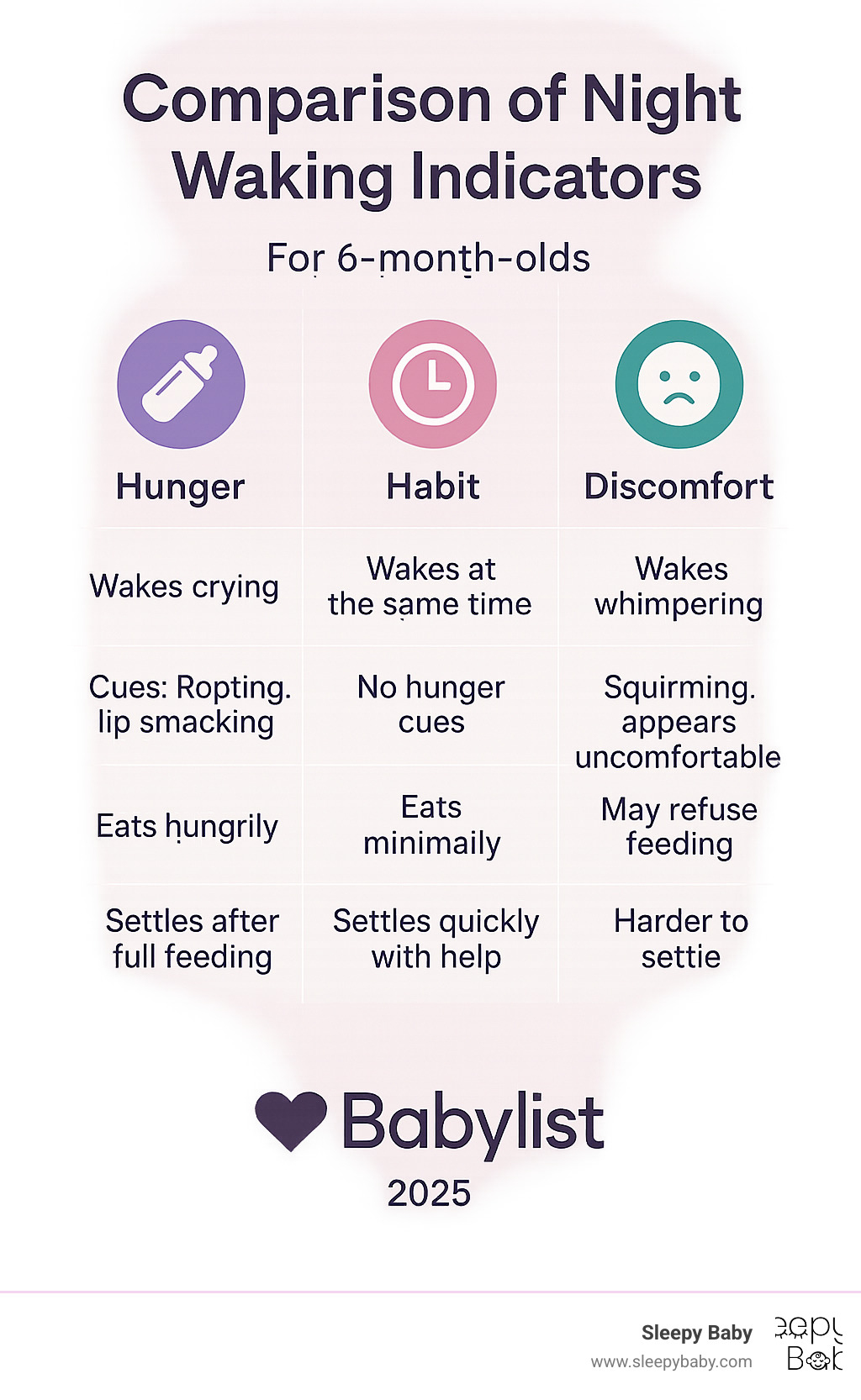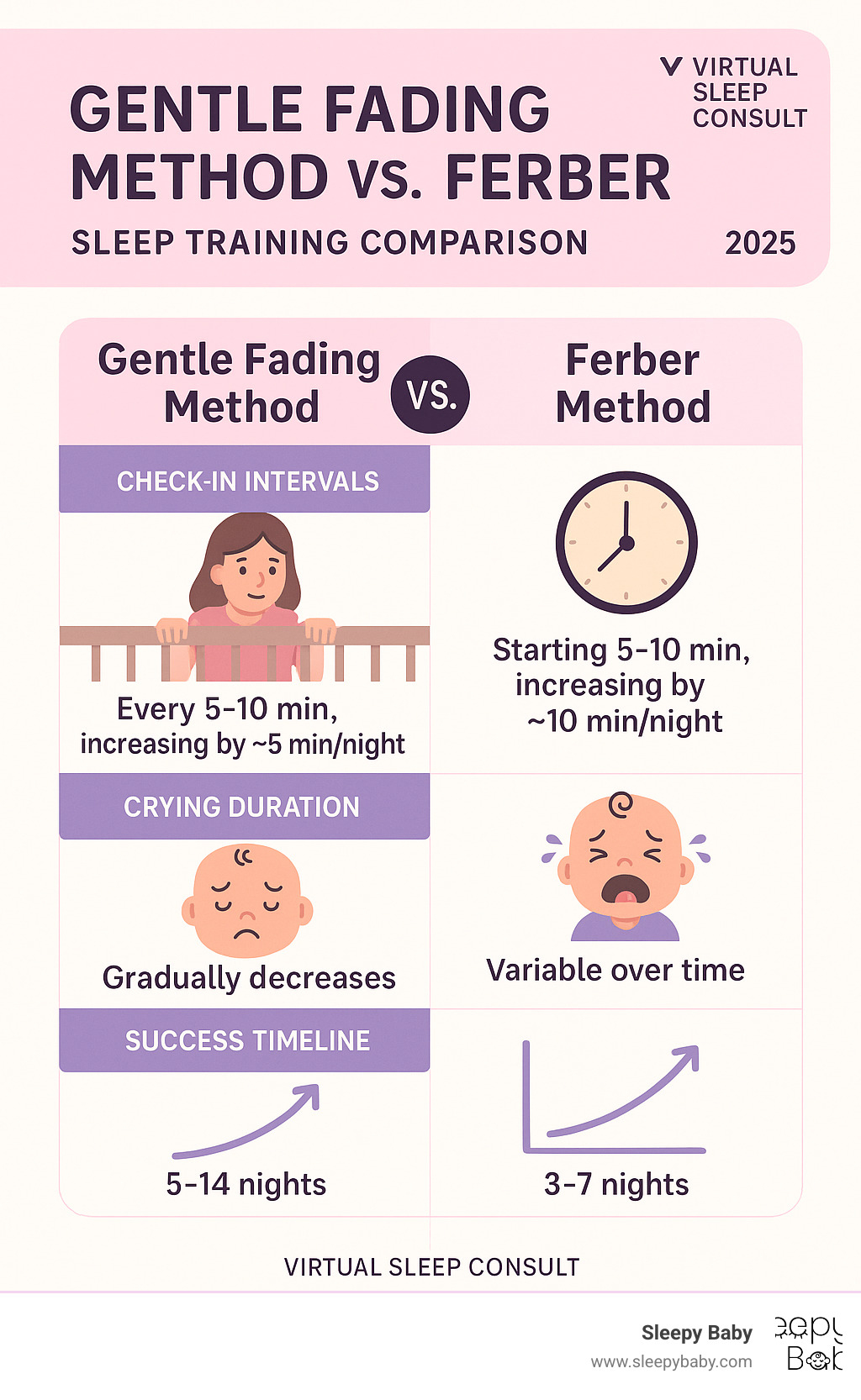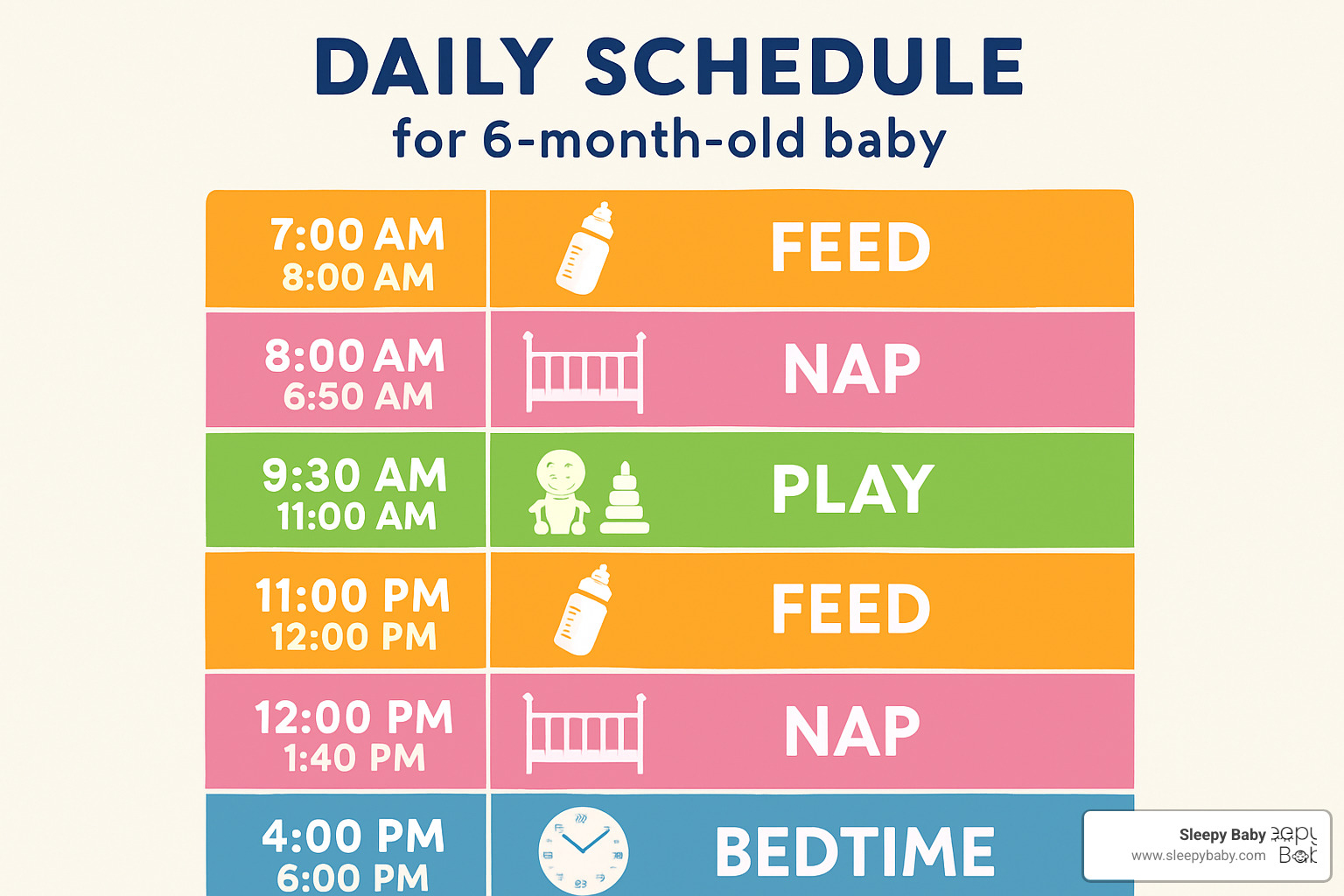
















6 month old night wakings are frustrating when your baby was finally sleeping through the night, but this setback is completely normal. Here's what you need to know:
Common Causes:
Quick Solutions:
About 25% of 5-month-olds can't sleep 6 hours straight, and frequent night-wakers get 1.5 hours less sleep overall. By 6 months, most babies can physiologically sleep 6-8 hour stretches.
I'm Gary Harutyunyan, and after struggling with my own baby's sleep challenges, I created solutions that have helped thousands of families overcome 6 month old night wakings.

If you're dealing with 6 month old night wakings, you're not alone. About 50% of 5-month-olds can sleep 8-hour stretches, but 25% are still frequent wakers who struggle through the night.
Your 6-month-old needs 12-16 hours of total sleep per day - typically 10-12 hours at night plus 2-3 hours in daytime naps. They're going through the consolidation phase, transitioning from simple two-stage sleep cycles to four distinct stages like adults.
Research shows about a third of frequent night-wakers at 5 months still struggle with 6-hour stretches at two and a half years old - which is why addressing these wake-ups now matters.

The 6-month sleep regression hits because your baby's brain is having a growth spurt. Unlike earlier wake-ups from hunger or wet diapers, this regression is about mental development.
Motor skill practice is the biggest culprit. Your baby might be wide awake at 2 a.m., practicing rolling over instead of sleeping. Object permanence also kicks in - they understand you exist even when unseen, triggering separation anxiety in the dark.
The sleep cycle maturation process causes more frequent brief awakenings as their brain learns to steer new, complex sleep stages.
By 6 months, most babies can handle 6-8 hours without eating, but growth spurts complicate things.
True hunger shows clear signs: rooting or sucking motions, immediate calming when offered food, taking full feedings, and longer sleep afterward.
Habit waking looks different: same-time wakings, fussing without hunger cues, minimal food intake, and quick return to sleep with comfort.
Reverse cycling happens when babies get distracted during day feeds, consuming more calories at night and less during the day.
When 6 month old night wakings return after good sleep, it's detective work. The American Academy of Sleep Medicine guidelines help identify what's happening.
Environmental factors are easiest to spot: room temperature around 68-70°F, darkness, and quiet conditions. Sometimes subtle changes like new sounds or light sources disrupt sleep.
Physical comfort issues include wet diapers, teething pain (worse at night), or illness symptoms that worsen when lying flat.
Developmental factors are trickiest - your baby's brain processes new skills and awareness, causing mental practice sessions during sleep time.

Wait 1-2 minutes before rushing in - many babies settle themselves. When you check, keep interactions minimal and dim.
Check diaper first, feel for temperature (chest or neck), and listen for congestion. Look for hunger cues like rooting or hand-to-mouth movements.
The 6-month mark brings major brain development affecting sleep. Motor skill practice is huge - babies might roll onto their tummy and get frustrated, or try sitting up in their crib.

Increased alertness means awareness of every sound. Extra tummy time and motor skill activities during the day reduce nighttime practice urges.
A behavioral intervention study shows consistent approaches significantly reduce night wakings. Success comes from combining several techniques.
Establish a 20-30 minute bedtime routine - bath, feeding, quiet cuddles. This signals sleep is coming. Put baby down drowsy but awake - when babies learn independent sleep at bedtime, they self-soothe during night wakings.
White noise consistency masks household sounds. Getting wake windows right (2-3 hours between sleeps at 6 months) hits the sleep sweet spot. Consistency across all caregivers is crucial.

Once you've determined wakings are habit-based, gradually shift calories to daytime.
Start with daytime calorie shifting - larger day feeds, extra snacks if eating solids, substantial bedtime feed. Gradual reduction works better than cold turkey. For breastfeeding, reduce duration by 2-3 minutes every few nights. For bottles, gradually dilute with water.
Have your partner handle some wakings to break feeding associations. Consider a dream feed around 10-11 PM. The timeline typically takes 1-3 weeks.
At 6 months, babies are developmentally ready for most approaches.
Gentle fading involves gradually reducing presence over 7-14 days. The chair method - sit beside crib for 3-4 nights, then move farther away. The Ferber method uses timed check-ins at 3, 5, then 7-minute intervals.
Consistency is crucial regardless of method chosen. Pick one approach and commit for at least a week.
For detailed guidance, check our snooze control guide for complete sleep schedules.
Building healthy habits starts with understanding natural rhythms. Most 6-month-olds do best with 2-3 naps and 2.5-hour wake windows.
Sample schedule:
The third nap is tricky - some babies need it, others do better with quiet time. If it goes past 6:00 PM, it might push bedtime too late.
Daylight exposure in the morning sets internal clocks, while tummy time provides physical tiredness. For detailed guidance, see our post on mastering the 6 month old sleep schedule.

Your baby's sleep space should feel like a sanctuary. Temperature between 68-70°F - test the back of their neck (warm but not sweaty). Blackout curtains for all sleep periods signal melatonin production.
White noise should be consistent and boring - hair dryer sounds rather than lullabies. Keep it moderate volume. Safety first: only fitted sheet and sleep sack in the crib.
When babies fall asleep independently at bedtime, they're more likely to self-settle during night wakings.
Start with bedtime when babies are naturally most tired. Gradually reduce help rather than going cold turkey. Replace sleep associations patiently - it's like learning to ride a bike.
Our Sleepy Baby devices provide consistent, rhythmic patting that mimics your touch while allowing independence learning.
Most 6 month old night wakings are normal, but some signal serious issues needing professional attention.
Immediate medical attention needed for labored breathing, poor weight gain with sleep issues, or reflux signs like frequent spitting up and back arching.
For persistent issues, see our article on nighttime battles.

Fever with sleep disruption always warrants attention. Chronic congestion lasting over a week makes breathing difficult when lying flat. Suspected sleep apnea - watch for breathing pauses, loud snoring, or gasping.
Ear infections cause pain that worsens lying down. Dramatic sleep pattern changes without clear cause should prompt pediatrician visits.
Sleep deprivation affects judgment and mood. Taking care of yourself is necessary.
Split night shifts with your partner. Accept help with daytime tasks. Power naps during baby's naps are lifesavers. Maintain basic nutrition with easy, healthy snacks.
Practice mindfulness during feeding times. Connect with other parents facing similar challenges. Watch for signs you need additional support - feeling overwhelmed, difficulty bonding, or inability to function during daytime.
Most 6 month old night wakings from sleep regression last 1-3 weeks, though some families experience challenges for up to 6 weeks.
Consistency is your best friend - families who stick to their approach see faster improvement. Pure developmental regressions resolve faster than those complicated by illness or teething. Many parents notice improvement within the first week, but complete resolution often takes longer.
By 6 months, most babies can nutritionally go 6-8 hours without feeding, but exceptions exist.
Some babies genuinely need night feeds - those below average weight, with slow weight gain, or distracted during day feeds. It might be time to reduce if baby gains weight appropriately and eats solids well during the day.
Distinguish between need and habit: full feeding followed by hours of sleep suggests hunger; brief sips with frequent nursing suggests comfort.
Research consistently shows appropriate sleep training does not harm parent-child bonds. Better sleep often strengthens family relationships.
Multiple studies find no evidence of long-term emotional harm. What matters most for bonding: consistent, responsive parenting during awake hours. Teaching independent sleep is actually loving care - giving your baby a valuable life skill.
6 month old night wakings feel overwhelming, but they're temporary. Most families see improvement within 2-4 weeks with consistent approaches.
Every baby is unique. The key isn't finding the "perfect" method - it's finding what works for your family and having patience to see it through.
Your most important tools: consistency over perfection, addressing underlying causes before behavioral changes, and trusting instincts about when to seek help. Don't forget self-care during this exhausting time.
Our Sleepy Baby portable soothers provide gentle, rhythmic patting and soothing white noise to help babies learn self-soothing. It's like having extra hands when you're most tired - mimicking comforting caregiver touch while building independent sleep skills.
Stay consistent with your chosen approach. Track progress (small wins count!), and remember that seeking help shows strength. Some nights will still be hard, but you're building skills serving your family for years.
This phase will pass. Your baby will sleep through the night again. Sweet dreams are ahead - sometimes the journey just takes patience and the right strategies.
For comprehensive guidance, explore our detailed guide on infant sleep patterns in the first year. You've got this, and we're here to help every step of the way.